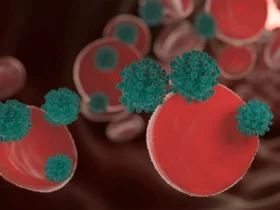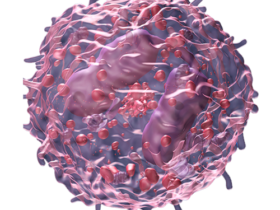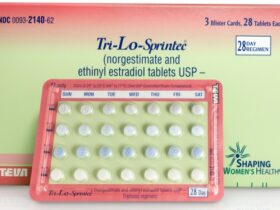Twins and False Negative Pregnancy Tests
Can twins cause false negative pregnancy tests? This question often arises in the minds of women who suspect they might be pregnant with twins but receive a negative result on a pregnancy test. Pregnancy tests are designed to detect the presence of the hormone human chorionic gonadotropin (hCG), which is produced by the placenta. Birthing a child is thrilling. A pregnant woman takes a pregnancy test first. These tests detect hCG in women’s urine or blood.
The placenta produces this hormone after fertilisation to assist pregnancy.
But what happens when a woman takes a twins pregnancy test negative and gets a negative result, despite feeling all of the classic pregnancy symptoms?
This is a false negative result, which several factors can cause. One possible cause of false negatives is having twins or multiples.
This may seem counterintuitive – after all, wouldn’t having twins result in higher levels of hCG, leading to an even stronger positive result? It’s complicated.
What Are False Negative Pregnancy Tests?
Before diving deeper into how twins can cause false negatives on twins pregnancy test negative let’s look at what false negatives are. A false negative occurs when a pregnant woman receives a damaging result on her negative pregnancy test with twins. This can happen for many reasons, including taking the test too early (before there’s enough hCG in her system to register), taking medications that interfere with hCG levels, or using an expired or faulty test.
It’s also worth noting that some women don’t produce enough hCG to register on most home negative pregnancy test with twins– this is called having low hCG levels. However, when it comes to twin pregnancies specifically, some unique factors at play can make it more likely for women to experience false negatives on their tests.
How Pregnancy Tests Work
Pregnancy tests are fast and easy. They detect hCG in your urine. After implantation, the placenta generates this hormone.
A negative pregnancy test with twins measures urine hCG levels.
The test contains particular antibodies that bind to hCG molecules if they are present in your urine sample.
If hCG is detected, it will trigger a chemical reaction that produces a positive result on the test. The amount of hCG detected determines how strong the positive impact will be.
The Sensitivity Levels of Different Types of Pregnancy Tests
Pregnancy tests vary in sensitivity. Some tests can detect hCG at 10 mIU/ml, whereas others need 50-100.
Urine and blood negative pregnancy test twins are most common.
Urine-based tests include over-the-counter (OTC) home negative pregnancy test twins and clinic urine tests, while blood-based tests include serum hCG testing done at clinics or hospitals.
OTC home twin pregnancy negative tests are susceptible and can usually detect pregnancy as early as 7-10 days after conception. These tests have high sensitivity, but human error or testing too early or late can make them inaccurate.
Clinic urine tests may have lower sensitivity than home pregnancy kits but can be more accurate because they’re administered by healthcare professionals who ensure proper timing and technique for testing. Blood-based tests are the most sensitive and precise types of twin pregnancy negative test but require a visit to a clinic or hospital and a blood draw.
The sensitivity level of these tests can be as low as five mIU/ml, which makes them helpful in detecting pregnancy very early on when hCG levels are still low. They’re more expensive and take longer than urine-based testing.
Twin Pregnancies and hCG Levels
The Science Behind hCG and Twin Pregnancies
The placenta produces hCG, which most false negative pregnancy test twins detect. During pregnancy, hCG levels rise and then fall.
Twin pregnancies produce more hCG than singletons.
This is because two embryos are implanted in the uterus, each with some amount of hCG.
How Twins Can Affect Pregnancy Test Accuracy
The high levels of hCG present in twin pregnancies can sometimes cause false negative results on pregnancy tests. This occurs when a test fails to detect hCG at a level that would indicate pregnancy because it is not sensitive enough or because it was taken too early before enough hCG has been produced. A woman taking an over-the-counter pregnancy test a few days pregnant with twins may get a negative result due to low urine hormone levels.
As a result, she may continue believing she is not pregnant until later when her symptoms become more pronounced, or an ultrasound confirms her twin pregnancy. It’s important to note that while twins can cause false negatives, they are not always due to this factor alone.
Factors That Influence Accuracy
Timing is Everything
Timing plays a crucial role in the accuracy of false negative pregnancy test twins. To get an accurate result, you must wait until your body has produced enough hCG to be detected by the test. If you take a test too early, it may appear negative even if you are pregnant.
Many tests recommend waiting until the first day of your missed period before taking them. However, waiting until your missed period does not guarantee an accurate result.
Some women have irregular cycles or ovulation, making it hard to timing a pregnancy test.
Additionally, some women may have a longer or shorter menstrual cycle than average which can impact their timing for taking a pregnancy test.
User Error and Other Factors
User error and other factors can also impact the accuracy of twins negative pregnancy test. If you don’t follow the packaging instructions or misunderstand the results, your reading may be erroneous.
Certain medications or medical conditions can also affect hCG levels and impact pregnancy test results. It’s important to note that twin pregnancies do not always cause false negatives – they can be due to various reasons, as we’ve just discussed above, such as timing and user error.
While twins have higher levels of hCG which can cause false negatives in some cases, it’s essential not to assume twins as a cause without proper medical advice. If you have taken multiple twins negative pregnancy test that have come back negative but still suspect you may be pregnant, especially if your family has a history of multiple pregnancies, consult with your doctor, who will advise you on how to get an accurate result so you can receive proper care during this extraordinary time in your life!
Case Studies and Real-Life Examples
Incredible, Yet True Stories
Now let’s look at real-life examples of women who experienced false negative results due to twin pregnancies. One woman in her mid-thirties, Sarah, took three pregnancy tests over a week, and all returned negative. She was experiencing a few early pregnancy symptoms like fatigue, morning sickness, and sore breasts, but she put it down to stress.
She was pregnant with twins after getting a blood test from her doctor.
Although rare, stories like Sarah’s raise questions about the accuracy of at-home twin pregnancy negative tests when detecting twin pregnancies.
Another woman, Laura, had been trying for months to conceive and had received several negative home pregnancy test results before finally receiving a positive impact using one of the more sensitive tests. However, when she went in for her first ultrasound appointment six weeks later, hoping to see one healthy fetus on the screen – she was surprised when two little heartbeats were detected.
Evidence-Based Support
There are many cases where women have experienced false negatives despite being pregnant with twins. According to research published in The Journal of Obstetrics and Gynecology Canada (JOGC), twin pregnancies can cause false-negative urine hCG results up until six weeks gestation with both laboratory-grade serum assays as well as over-the-counter assays such as First Response Early Result Pregnancy Test or Clearblue Digital Pregnancy Test.
A case report published by The Journal of Family Planning and Reproductive Health Care describes several cases where women continued taking birth control pills after they were already pregnant without knowing it – their urine-based twin pregnancy negative test kept returning negative results despite the presence of HCG in their blood samples due to twin pregnancies. These examples illustrate that while rare, these scenarios can occur and serve as an essential reminder always to seek medical advice when there is any suspicion of pregnancy, especially if you are trying to conceive or have a higher chance of creating twins due to family history.
FAQ
Can other factors besides twins cause a false negative pregnancy test?
Can false negatives occur with other types of pregnancy tests, such as blood tests?
Conclusion
When in Doubt, Seek Medical Advice
As discussed, various factors, including twin pregnancies, can cause false negative pregnancy tests.It’s exciting to consider having twins, but a false negative can be damaging. If your pregnancy test indicates twins and you’re having problems, visit a doctor.
Your doctor may recommend waiting a few days before testing again or ordering a blood test to check your hCG levels. There is no one-size-fits-all answer for pregnancy.
Takeaway: The Importance of Accurate Testing
Accurate pregnancy testing ensures the best possible outcome for both mom and baby. False negatives can lead to delayed prenatal care, which can have severe consequences for the health of both mother and child.
It’s essential to use reliable tests and follow the instructions carefully to get accurate results. While false negatives caused by twin pregnancies are rare, they do happen.
Awareness of the possibility can help you make informed decisions about when to test and seek medical advice. Remember, knowledge is power – so stay informed and trust your instincts!






Leave a Reply